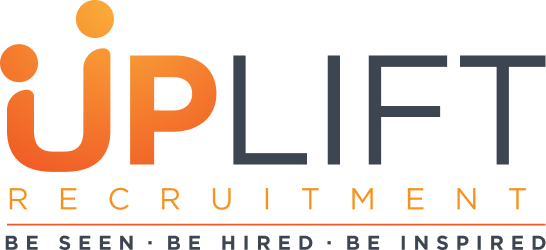
10 Productivity Tips for Working SMARTER, not Harder
Batch Activities
Batching activities is a great way to increase productivity and finish tasks in less time. Rather than tackling large tasks individually throughout the day, try organising emails, writing assignments, or other tasks into smaller batches and completing them all at once. This will help improve concentration and efficiency so you’re working smarter, not harder. By batching activities together, you can get more done in less time as long as you still take regular breaks to avoid feeling overwhelmed or fatigued.
Tame Your To-Do List
It can be difficult to manage the vast amounts of tasks needed to accomplish our goals but taming your to-do list is essential for success. To help stay organised, create 3-5 “Most Important Tasks” (MITs) at the beginning of each day and prioritise them in order of importance. Take a few moments to write down all the items on your list and estimate a realistic timeframe for completion. As you work through each task, cross it off when complete or move it forward if needed. Additionally, break larger projects into smaller chunks that can be tackled in shorter periods of time. Following these steps will make sticking to your to-do list much more manageable and put you on track to accomplishing your goals!

Reduce Distractions
Staying focused and reducing distractions is essential for productivity. One of the best ways to do this is to ensure your workspace is phone-free. Removing or silencing all phone distractions can help promote greater concentration without any interruptions. Additionally, decluttering your office space by organising physical and digital documents into a system can help lessen external clutter and stress. Create an efficient filing system that is easy to maintain so you always know where documents are stored and can quickly find what you need when necessary. Cleaning out your physical desk, computer, emails, and other online services regularly will also drastically reduce any distractions that prevent you from reaching peak productivity. Learn more ways to reduce distractions on our blog.
Adhere to a Routine
Adhering to a routine is a valuable tool that can work wonders for work productivity. By establishing habits and routines, individuals can free up their mental energy and work smarter instead of harder day in and day out. This autopilot mode allows us to work with greater efficiency as by remaining consistent with our habits, we become creatures of habit who work in an almost instinctive fashion. Our work quality improves when not bogged down with mundane tasks that only take away from our potential. Routines give us the space to focus on larger projects and challenges rather than having to think about what comes next each day. Harnessing the power of routines can help anyone reach peak performance in a wide variety of settings.
For example, our marketing manager wakes up every morning at 5:20 am. She does breathing exercises and then goes for a quick swim. From 6:00-8:30 am she organises the day ahead and works on the most pressing MITs. At 8:30 she does school drop off and then goes to work out. At 11:00 she eats lunch and then starts work again, batching most meetings between 12-3. 3-5 PM she wraps up outstanding tasks so she can finish the day with her family.
Manage Your Time Strategically
Managing your time strategically does not mean plotting out tasks down to the minute and attempting to stay on schedule. To actually use your time effectively, it is important to recognise that your internal clock is different from any other person, as no one’s energy level follows the same pattern. A strategy to consider is completing 90 minutes of work followed by a 20-minute break, allowing you to keep productivity high while enabling rest periods. Utilising this method will help you manage your energy levels ensuring you make the most of each day.
Stop Multitasking
Multitasking has long been touted as an effective way to manage our days, but scientific evidence suggests that the brain struggles when we try to juggle several tasks at once. In fact, multitasking can actually make us less efficient in the long run. We are much better off focusing on one task at a time in order to get it done quickly and efficiently. Doing this helps us remain organised and allows us to be more effective as we go through our days. It may take a while to break the habit of multitasking, but if you take the time to focus on one thing at a time, you will appreciate the positive results.
Just Begin
Starting a project often comes with anxiety and fear of failure, but the most important step is to just get started. Doing something, even if you feel it’s not perfect in hindsight, helps move the project forward and can help eliminate debilitating self-doubt. In fact, one way to start is to follow the Zeigarnik Effect, which states that when we start something and leave it incomplete our mind will unconsciously continue to ruminate on it until it’s completed. Taking this approach helps us to focus on getting the project rolling without overanalyzing every single decision. With momentum from taking the first step, the project will come together faster than if you had stayed in paralysis by analysis mode for too long. So don’t keep procrastinating: just begin!

Automate
Businesses talk all day about automation because it allows them to increase efficiency and reduce time spent on manual tasks, but what about automating more of your non-crucial decisions? Acclaimed author Tim Ferriss promotes the concept of “decision fatigue” – where increased cognitive load negatively impacts focus, creativity, and productivity. Automation can help to conserve mental energy by providing self-regulation in the processes themselves. That’s why Mark Zuckerberg wears the same outfit everyday. One less thing to decide. As more tasks become automated and traditional jobs become more efficient due to this technology, employees can prioritise sharper thinking and higher value interactions – improving engagement with customers or leading more strategic projects. By relieving our brains from mundane, mechanical workflows; automation is a key enabler for business growth.

Find Your Calling
“THE PATH WILL PULL YOU. When you’re on your chosen path, you’ll find that you rarely need to push yourself to work. Instead, you begin to experience the joy and excitement of being pulled toward your objectives.”
― Chase Jarvis
Doing what you love is an easy way to empower yourself and work smarter, not harder. Pursuing activities that bring you joy can enhance your productivity, focus, and creativity which ultimately leads to a more enriched life. When you are passionate about a task, the end result often exceeds anything that could be achieved by simply going through the motions. Doing what you love can help eliminate monotony from life and might even open up new opportunities for success. In such a fast-paced world of ever-increasing demands, doing what you love is essential for achieving balance in life both professionally and personally.
Say No
At Uplift, we love this concept so much that we wrote an entire blog post about it. Setting boundaries and knowing when to say no is an essential part of smarter working. It can be hard, especially when you feel obligated to help out a colleague or jump on board a new project that may not fit your purpose. To avoid wasting time and energy on tasks that won’t bring you closer to your goals, it’s important to draw the line and turn down requests that don’t fit within your plan of action. This isn’t meant as a sign of disrespect but rather can be seen as an appropriate way to prioritise working smarter over harder.
If you’d like to learn more tips to boost your career or business, be sure to follow our Instagram account + read this blog regularly.
